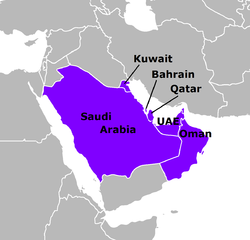- By Jamal Joudi
Oman | GCC countries introduce Sin Tax

Advertise here from only OR 100 [$275 USD]

Oman, UAE, Saudi Arabia, Qatar, Bahrain, Kuwait. Residents may have to pay double the price for unhealthy products after a ‘sin tax’ kicks in, experts say, but the boost to health and the economy will be worth it many economists and doctors claim.
The new levy on items such as cigarettes, certain beverages and energy drinks will be 100 per cent of the retail price and all GCC members states have agreed to introduce it, according to global experts.
Analysts in Oman say the new prices could be in place as early as the year end.
That means an OMR 1.2 pack of cigarettes could then cost OMR 2.4 a move welcomed by health ministry officials and economists alike.
Under the GCC excise framework agreement, all GCC member states have committed to introducing excise tax by the end of 2017.
According to the framework published in the Saudi official Gazette recently, beverages, energy drinks and tobacco will be taxed at 100 per cent while a 50 per cent tax will be levied on soft drinks.
“Excise tax is expected to be imposed on the importation and production of soft drinks, energy drinks and tobacco across the GCC,” Adrienne D’ Rose, senior manager, Indirect Tax at Deloitte said.
“Although levied at import or manufacture, the rates to be applied are expected to be primarily based on the retail sales price (RSP) of the products, and set at a rate of 50 per cent for soft drinks and 100 per cent for energy drinks and tobacco.
There has been no published guidance on how the RSP will be determined at this stage.” In the UAE it is expected that excise will be implemented in Q4 2017.
Saudi Arabia has already applied it. The GCC framework also includes a Value Added Tax (VAT) regime across all states which is expected to begin in 2018.
Experts believe VAT will be calculated on the excise inclusive value of the goods, meaning yet another hike. Where the VAT exclusive retail sales price for a can of cola is 100 bs, the excise should be 50 bs, resulting in an excise inclusive cost of 150 bs, where the excise tax is fully passed down the supply chain.
Once introduced, VAT should be payable in addition at 5%, resulting in a final price to the customer of 157.5 bs. Costs of a pack of cigarette that costs OMR 1 will go higher than OMR 2 while energy drinks that cost nearly 500 bs will cost more than OMR 1 once these taxes are applied.
This however assumes that the cost of excise tax is fully passed down the supply chain but in practice some parties in the supply chain may elect to absorb some of the excise cost.
“The introduction of excise is expected to have broader impacts on consumer behaviour, the local market and regional supply chains,” one leading economist tells Al-Sahawat Times. “We see that cost of tobacco and other such products are very low in GCC countries when compared to European countries.
The excise tax is certainly good for the economy as it will help increase government revenue. Consumption may be affected but this will contain habits of consuming harmful products especially amongst the younger population.” relates Fabio Scacciavillani.
Al-Sahawat Times | Ethical News from Oman and UAE | Donate HERE
Chief Economist at Oman Investment Fund said. “Moreover, if people instead use the money spent on tobacco on local products and services like a restaurant, it will be a substitute for foreign demand, which is again good for the local economy.”
According to health department officials, countries that had previously raised taxes on tobacco have been able to reduce significantly the impact of tobacco use.
“We hope that the price of a pack [of cigarettes] will be higher, and rise to a level that can help reduce consumption (significantly),” Dr Jawad al Lawati senior consultant and rapporteur of the National Tobacco Control Committee at the Ministry of Health said.
Al Lawati said that since many people who use tobacco are poor and are more prone to diseases, higher costs of smoking would deter them from this bad habit.
“They spend a large part of their income on tobacco rather than on their families,” he stated. Residents and doctors have both welcomed the move. “Very happy to hear this is coming soon. We have been waiting for such a law. This will make it harder for people especially schoolchildren to get. Also, smoking must be restricted to certain places. We can’t have families and children be subjected to passive smoking. It’s an unfriendly atmosphere. Glad to hear this coming into effect this year.”
Maaz Firdous, Consultant at Al Iskaan Engineering said.
Dr Pradeep Maheshwari, an Internal Medicine specialist at the Atlas Hospital, said: “That’s a good sign. It reduces the consumption of tobacco products. People will think twice before spending more on tobacco. It would be a welcome step in addition to the government banning smoking in public places and banning ads.” he added.
“Taxes should be increased. The public will not be able to easily buy these products and the use may decrease.”
Currency:
The Omani Rial (OMR) is divided into 1’000 Baisa (bs)
1 OMR as of today =
$2.60 USD
2.29 EURO
£2.01 GBP
0.78 KWD
9.74 SAR
9.46 QAR
34.35 ZAR
9.54 AED
649.39 YER
This story is available on:
APPLE NEWS | GOOGLE NEWS | AL-SAHAWAT TIMES
Talk to a journalist:
Email: NewsDesk@alsahawat.com
Web: alsahawat.com
Twitter: @alsahawat_times
J.Joudi@alsahawat.com
Views: 0





